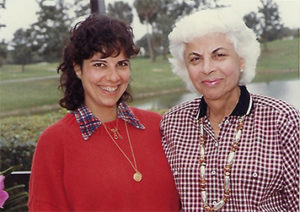Roslynn Carter once said, “There are only four kinds of people in the world – those who have been caregivers, those who are caregivers, those who will be caregivers and those who will need caregivers.”
Helping a loved one as their caregiver is a selfless responsibility many of us will take on at some point during our lives.
Readers of this blog already know how stressful caregiving can be. Things get harder without detailed planning. Long term care insurance (LTCi) can provide some financial security and peace of mind.
Challenges Caregivers Face
To help caregivers understand and find solutions to their challenges, EduMed created a fantastic online guidebook for caregiving success. I like this guidebook because it is brief, concise, and gives actionable advice. I read many stories about caregiver and patient suffering and hardship. Very few sources provide practical, useful advice helping caregivers find their way forward.
The guidebook begins by highlighting the challenges facing caregivers on a regular basis. It’s important to know that these experiences are shared by so many others.
These challenges include:
- Time Management — How to juggle daily errands, feeding & bathing your loved one, doctor appointments and your own self-care.
- Stress (physical and emotional) — Like headaches, chest pain, loneliness and/or anxiety.
- Lack of Privacy — Your life is no longer your own, as the needs of your loved ones take priority. Whether or not they or the rest of your family appreciate your efforts.
- Financial Strain — Even with your attentive care, medical bills might be adding up. Without proper planning and effective coverage from long term care insurance, the pressure easily builds.
- Lack of Sleep — The added responsibilities of caregiving can often lead to increased anxiety or insomnia.
- Isolation — Spending so much time caring for your loved one can limit the time you used to share with friends. The mere idea of lunch out can sound like a fantasy.
- Burnout — The combination of physical, mental and emotional energy required can overwhelm most people.
Suggestions to Support Caregivers
Fortunately, this guidebook gives some practical advice that caregivers can follow. They boil down to 3 major areas:
Process (organize your tasks)
Make lists, capture appointments and reminders on calendars. Research the numerous phone apps that are available (Some suggestions are included in the handbook).
People & Community (connect with a support system)
You don’t have to do this alone! For example, consider building a support team so you can delegate certain tasks. Find support groups so you can connect with others to share your stories, your woes and your wins.
Self Care (don’t forget YOU)
Even the lightest exercise routine can make a difference in your outlook. So can healthy food choices. And don’t forget to make time to have some fun (remember fun?). You can’t help anyone when your own tank is running on fumes.
Choosing to take care of a loved one is a huge decision, not to be made lightly. With all of the uncertainty and self-sacrifice, one of the most helpful things you can do is plan ahead. As I’ve written in multiple posts, have the conversation today! Decide what that care will look like, what’s expected of you and a reasonable budget.
Perhaps you’ve been thinking about long term care insurance (LTCi) to help reduce some of these challenges. Click here to receive a free, no-obligation quote for your own LTCi policy.



 Thanks for visiting my site! I like hearing from you!
Thanks for visiting my site! I like hearing from you!